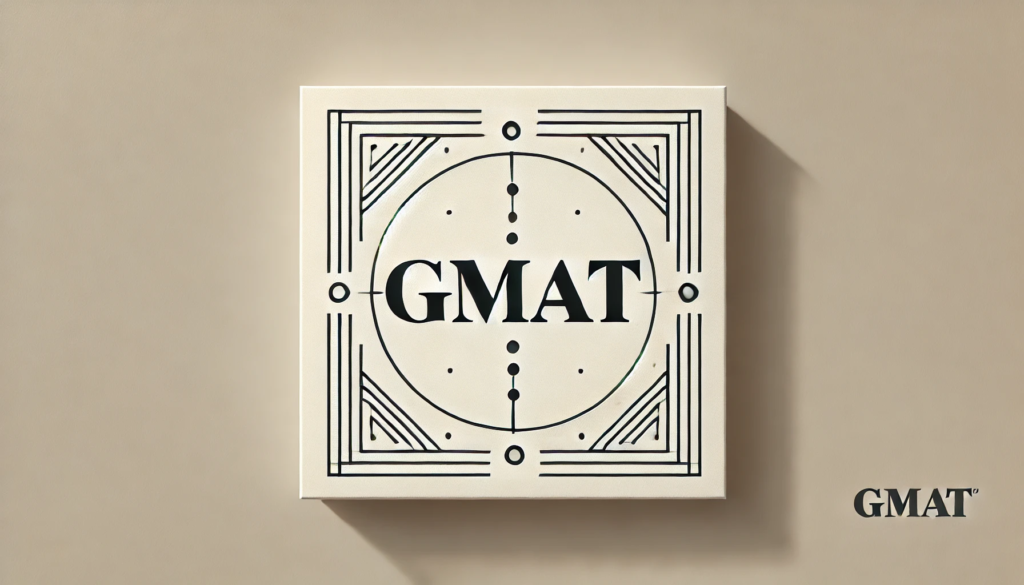So, you’re searching for the Best GMAT Coaching in Bangalore to kick-start your journey to an MBA abroad, aren’t you? The good news is, you’re in the right place! Choosing the perfect GMAT coaching center isn’t just about proximity—it’s about ensuring the right guidance, resources, and mentorship to ace your test and stand out in competitive admissions.
In this comprehensive guide, we’ll walk you through the top 5 5 Best GMAT Coaching in Bangalore, their fee structures, course offerings, and unique benefits. Plus, we’ll share some expert tips to help you maximize your GMAT preparation.
Key Takeaways from This Guide
- Top Coaching Centers: We’ve outlined the top five institutes, detailing their strengths, fees, and unique features to help you make an informed choice.
- Selection Criteria: Understand the importance of faculty expertise, track records, course structures, and additional services.
- Flexibility in Learning: Explore online substitutes or hybrid approaches that combine the best of both online and offline coaching.
- Time and Effort: GMAT success demands 2–4 months of focused preparation, mock tests, and strategic time management.
Detailed Breakdown of the Top 5 GMAT Coaching Institutes in Bangalore
1. Top 1% GMAT Coaching
Top 1% is a premium coaching institute that has earned its reputation through consistent results and a student-centric approach. Established in 2010, it boasts a record of helping over 5,000 students secure top GMAT scores. What sets Top 1% apart is its personalized study plans that adapt to individual student needs, ensuring targeted improvement. The institute emphasizes small batch sizes to foster one-on-one mentorship and interactive learning. Their expert faculty provides deep insights into GMAT concepts and strategies, complemented by rigorous mock tests designed to mimic the real exam.
| Feature | Data |
|---|---|
| Fees | ₹40,000–₹50,000 |
| Established | 2010 |
| Students Trained | 5,000+ |
| Key Features | Personalized study plans, expert faculty, small batches, flexible installment options, scholarship opportunities |

2. Jamboree
Jamboree is synonymous with test preparation excellence in India. Operating since 2005, it has trained over 10,000 students and is particularly popular among MBA aspirants. The institute offers a hybrid coaching model, allowing students to switch between online and offline classes. Jamboree is known for its exhaustive GMAT study material and analytics-driven performance tracking. With experienced faculty, their teaching methodology emphasizes understanding core concepts and improving problem-solving skills. Their robust mock test platform provides students with actionable insights to fine-tune their preparation.
| Feature | Data |
|---|---|
| Fees | ₹35,000–₹45,000 |
| Established | 2005 |
| Students Trained | 10,000+ |
| Key Features | Hybrid courses, analytics-driven insights, comprehensive study material, flexible batches |
3. T.I.M.E.
T.I.M.E. (Triumphant Institute of Management Education) is a household name in India’s test prep ecosystem. Established in 1992, it has an unparalleled legacy of training over 20,000 students for the GMAT. The institute’s comprehensive curriculum is structured to cater to both foundational and advanced levels. Known for its systematic approach, T.I.M.E. combines classroom coaching with regular doubt-clearing sessions and exhaustive practice tests. Their faculty, with decades of experience, ensures students receive detailed feedback on performance, helping them achieve their desired scores.
| Feature | Data |
|---|---|
| Fees | ₹30,000–₹40,000 |
| Established | 1992 |
| Students Trained | 20,000+ |
| Key Features | Comprehensive curriculum, nationwide presence, doubt-clearing sessions, experienced faculty |
4. Manhattan Prep
Manhattan Prep is a relatively new entrant in Bangalore’s GMAT coaching scene, yet it has rapidly gained traction due to its innovative teaching style. Founded in 2018, it focuses on delivering affordable yet high-quality GMAT preparation. The institute stands out with its unique offerings, including one-on-one mentorship, weekly webinars, and targeted workshops to address common problem areas. Manhattan Prep’s affordability and commitment to providing niche strategies make it an attractive option for students seeking personalized attention.
| Feature | Data |
|---|---|
| Fees | ₹25,000–₹35,000 |
| Established | 2018 |
| Students Trained | 1,000+ |
| Key Features | Affordable pricing, 1-on-1 mentorship, weekly webinars, targeted workshops |
5. IMS Bangalore
IMS Bangalore has been a trusted name for competitive test prep for decades. Since 2020, it has focused heavily on personalized GMAT coaching. The institute is renowned for its curated GMAT study material and flexible schedules, designed to accommodate the needs of working professionals. IMS places a strong emphasis on student success, with mentors who are alumni of top B-schools. Its comprehensive program includes access to mock tests, application guidance, and a well-stocked library of GMAT resources.
| Feature | Data |
|---|---|
| Fees | ₹30,000–₹45,000 |
| Established | 2020 |
| Students Trained | 500+ |
| Key Features | Personalized coaching, curated study material, flexible schedules, mentorship from B-school alumni |

What Should You Really Look for in a GMAT Coaching?
Choosing the right GMAT coaching center is a critical decision that can significantly impact your preparation and final score. With so many options available, how do you determine which one is the best fit for you? Here’s a detailed breakdown of the essential factors to consider when selecting a GMAT coaching center in Bangalore—or anywhere else in India.
1. Faculty Expertise
The experience and expertise of the faculty can make or break your GMAT prep. Look for centers that employ instructors with strong academic backgrounds and proven success in coaching students. An ideal faculty member is not just an expert in GMAT content but also skilled in teaching effective test-taking strategies.
Why It Matters:
A knowledgeable and experienced faculty can simplify complex concepts, identify your weaknesses, and provide targeted guidance to help you excel.
2. Track Record of Success
Check the track record of the coaching institute. A reliable center will proudly showcase success stories, testimonials, and statistics about their students’ performance.
What to Look For:
- Number of students who achieved a 700+ score.
- Success in helping students gain admission to top MBA programs.
- Reviews and ratings from alumni.
3. Comprehensive Course Structure
A well-structured course should cover everything: verbal reasoning, quantitative reasoning, integrated reasoning, and analytical writing. Beyond content, it should also include mock tests, regular assessments, and focused feedback sessions.
Pro Tip:
Ensure the course includes a mix of foundational and advanced lessons, tailored for students of different skill levels.
4. Flexibility and Accessibility
Given the busy schedules of GMAT aspirants—many of whom are working professionals—flexibility is key. Look for coaching centers that offer options like weekend batches, evening classes, or online modules.
Key Consideration:
If you are balancing work or other responsibilities, the ability to switch between online and offline modes can be a lifesaver.
5. Cost vs. Value
While fees vary widely, what’s more important is the value you get for your money. Evaluate the overall package: the quality of teaching, study materials, and additional features like mentorship, doubt-clearing sessions, and post-GMAT application support.
Did You Know?
Many institutes provide installment plans or offer discounts for early enrollment.
6. Additional Support Services
The best coaching centers go beyond just preparing you for the GMAT. They often provide value-added services such as personalized mentorship, MBA admissions counseling, and access to exclusive resources like curated GMAT study material and mock test databases.
Key Factors at a Glance
| Factor | Why It’s Important | What to Ask for |
|---|---|---|
| Faculty Expertise | High-quality teaching and test-taking insights | Credentials, teaching experience, and student reviews |
| Success Stories | Proven effectiveness of the coaching institute | Success rate and testimonials |
| Course Structure | Holistic and comprehensive GMAT preparation | Detailed syllabus and mock test frequency |
| Flexibility | Convenience for working professionals | Weekend batches, online access |
| Cost-Value Ratio | Maximizing benefits for your investment | Installment options and scholarships |
| Support Services | Added guidance for MBA admissions | Application assistance and post-coaching resources |
Are There Any Online Substitutes to These Coaching?

With the digital revolution and an increasing demand for flexibility, online GMAT coaching platforms have gained immense popularity. They offer a viable alternative to traditional coaching centers, often at a lower cost and with added convenience. But are they as effective? Let’s explore.
Why Consider Online GMAT Coaching?
- Flexibility and Convenience
Online platforms allow you to study at your own pace, whether it’s during a lunch break at work or late at night. - Cost-Effectiveness
Many online courses are significantly cheaper than offline coaching, making them a great choice for budget-conscious students. - Access to Global Resources
From video lectures by international experts to exclusive GMAT study material, online platforms offer a treasure trove of resources. - Personalized Learning
Advanced AI-driven tools provide customized study plans, progress tracking, and targeted problem-solving practice.
Leading Online GMAT Coaching Platforms
1. Magoosh
Magoosh is one of the most well-known online GMAT prep platforms. It focuses on affordability and flexibility, offering a user-friendly interface and an extensive question bank.
| Feature | Details |
|---|---|
| Fees | ₹10,000–₹15,000 |
| Key Offerings | Video lessons, customizable practice sessions |
| Unique Perks | 24/7 email support, score improvement guarantee |
2. e-GMAT
e-GMAT is ideal for non-native English speakers, with its strengths in verbal reasoning and sentence correction.
| Feature | Details |
|---|---|
| Fees | ₹25,000–₹30,000 |
| Key Offerings | AI-driven analytics, video lessons, live classes |
| Unique Perks | Personalized study plans, doubt resolution |
3. Princeton Review (Online)
The Princeton Review offers a hybrid of recorded sessions and live classes, catering to diverse learning preferences.
| Feature | Details |
|---|---|
| Fees | ₹30,000–₹40,000 |
| Key Offerings | Full-length practice tests, live instructor help |
| Unique Perks | Mobile-friendly platform, study schedule planner |
4. Manhattan Prep Online
Known for its advanced GMAT strategies, Manhattan Prep’s online platform is a favorite among high-achieving aspirants.
| Feature | Details |
|---|---|
| Fees | ₹40,000–₹50,000 |
| Key Offerings | Interactive lessons, GMAT official guide support |
| Unique Perks | One-on-one tutoring options |
Offline vs. Online: Which is Right for You?
| Aspect | Offline Coaching | Online Coaching |
|---|---|---|
| Cost | Higher (₹25,000–₹50,000) | Lower (₹10,000–₹40,000) |
| Flexibility | Limited (fixed schedules) | High (learn anytime, anywhere) |
| Interaction | Direct face-to-face mentorship | Virtual, often less personal |
| Resources | Printed materials, classroom notes | Digital resources, AI-driven tools |
| Best Suited For | Students needing a structured setup | Independent learners seeking flexibility |
Pro Tip: Combine the Best of Both Worlds
If you prefer structured guidance but appreciate the flexibility of online resources, consider a hybrid approach. Enroll in an offline coaching center for mentorship and use online platforms for additional practice and mock tests. Online coaching is rapidly evolving, and many students have successfully cracked the GMAT using these platforms. Still, your choice should depend on your learning style, budget, and availability.
Do These GMAT Coaching Really Help?

If you’re wondering whether investing in GMAT coaching is worth it, the answer depends on your personal learning style, discipline, and goals. While self-study can work for some, structured coaching often provides a significant edge in competitive exams like the GMAT. Here’s a closer look at how these coaching institutes can make a difference.
1. Structured Learning
GMAT coaching institutes offer a well-organized curriculum that covers all aspects of the test—verbal, quantitative, integrated reasoning, and analytical writing. Unlike self-study, where students may struggle to prioritize topics, coaching provides a roadmap, saving time and effort.
Example: Institutes like Top 1% focus on targeted improvement with a personalized approach, ensuring students stay on track throughout their prep journey.
2. Access to Expert Faculty
Qualified instructors with years of experience in GMAT coaching provide unique insights and proven strategies. They help students navigate tricky sections like Data Sufficiency or Sentence Correction with ease.
Real Impact: Many students report scoring 700+ on the GMAT after understanding strategies taught in coaching, such as time management and handling high-pressure situations.
3. Mock Tests and Performance Tracking
One of the most valuable aspects of coaching is the access to regular mock tests. These are designed to simulate the actual GMAT experience and provide detailed feedback on your performance.
Why It Matters: Regular testing not only builds familiarity with the exam format but also helps identify strengths and weaknesses for targeted improvement.
4. Mentorship and Motivation
For many students, having an expert mentor is key to staying motivated and confident during preparation. Coaching institutes often assign mentors who provide guidance, resolve doubts, and push students to reach their potential.
Case Study:
A student who joined T.I.M.E. with an initial score of 580 improved to 710 within four months, thanks to structured mentorship and a disciplined approach.
5. Support Beyond the GMAT
Top coaching centers often extend their services beyond test prep. This includes personalized MBA admissions consulting, help with crafting compelling SOPs and resumes, and guidance for navigating the application process.
Added Value: Institutes like IMS Bangalore provide access to alumni networks and application counseling, helping students gain an edge in the admissions process.
Success Statistics: Coaching vs. Self-Study
| Aspect | Coaching Approach | Self-Study Approach |
|---|---|---|
| Average Score | 650–750 | 580–680 |
| Study Hours Needed | 200–300 hours | 400–500 hours |
| Success Rate | Higher (structured learning) | Moderate (self-discipline needed) |
Is Coaching Right for You?
Who Benefits Most from Coaching?
- Students who need structured guidance.
- Aspirants struggling with specific sections of the GMAT.
- Those aiming for high scores (700+) to secure admission to top MBA programs.
Who Might Not Need Coaching?
- Highly disciplined self-learners.
- Students with prior experience in test-taking or a strong command over GMAT concepts.
How Much Time Does It Take to Prepare for GMAT?

The time required to prepare for the GMAT varies from one individual to another. On average, most students spend 2–4 months preparing for the exam. However, the timeline largely depends on your current proficiency in the test sections, your daily schedule, and the resources available to you.
1. Assessing Your Starting Point
Before you start your GMAT preparation, take a diagnostic test to evaluate your baseline score. This will help you identify the areas that need the most improvement and determine how much time you need to prepare.
Example:
- If your initial score is around 450, you might need 4–6 months to reach a competitive score of 700+.
- For those starting at 600, 2–3 months of focused study could be sufficient.
2. Time Commitment Per Day
The number of hours you can dedicate daily plays a significant role in your preparation timeline. Here’s a rough guide:
| Daily Study Hours | Preparation Timeline |
|---|---|
| 1–2 hours/day | 4–6 months |
| 3–4 hours/day | 3–4 months |
| 5+ hours/day | 1.5–2 months |
3. Study Plan Overview
| Week | Focus Area | Key Activities |
|---|---|---|
| Week 1–2 | Diagnostic test + Fundamentals | Take a practice test, identify weak areas, revise basic math and verbal skills |
| Week 3–6 | Core GMAT sections | Work on Quant, Verbal, IR, and AWA with practice questions |
| Week 7–8 | Mock tests and strategy refinement | Take full-length mock tests, focus on time management |
| Week 9+ (if needed) | Intensive practice + Weak area improvement | Focus solely on sections where improvement is required |
4. Role of Coaching in Reducing Prep Time
A well-structured coaching program can significantly cut down your preparation time by providing:
- A clear roadmap for tackling each section.
- Ready-to-use GMAT study material.
- Regular mock tests with detailed analysis.
Example:- Students at Jamboree reported saving 30–40% of their prep time due to their structured curriculum and focused mentorship.
5. Balancing Preparation with Work/Studies
For working professionals or students managing other commitments, here are some tips:
- Plan Weekly Goals: Break down your preparation into manageable weekly targets.
- Utilize Weekends: Dedicate longer hours during weekends for intensive practice.
- Leverage Online Resources: Use mobile-friendly GMAT prep apps or online platforms for quick practice during breaks.
Pro Tips for Efficient GMAT Preparation
- Take Mock Tests Regularly: Aim for one full-length test every 1–2 weeks to track progress and build endurance.
- Focus on Weak Areas: Dedicate extra time to topics where you consistently score lower.
- Revise Strategically: Instead of re-studying everything, focus on key concepts and frequently tested areas.
- Seek Feedback: If you’re enrolled in a coaching program, regularly discuss your progress with mentors.
FAQs About GMAT Preparation and Coaching
When it comes to GMAT prep, students often have numerous questions about fees, preparation timelines, and coaching effectiveness. Here are answers to some of the most common queries to help you make informed decisions.
Q1: What is the average fee for the best GMAT coaching in Bangalore?
The fees for GMAT coaching in Bangalore typically range from ₹25,000 to ₹50,000, depending on the institute, course duration, and level of personalization. Institutes like Top 1% and Jamboree often provide installment payment options and scholarships.
Q2: Are online GMAT coaching options as effective as offline classes?
Yes, online GMAT coaching can be equally effective, provided it offers interactive sessions, quality GMAT study material, and personalized feedback. Platforms like e-GMAT and Magoosh are highly rated for their flexibility and affordability. However, offline classes may be better for students who prefer face-to-face interaction and a structured schedule.
Q3: How soon should I start my GMAT preparation classes before the test date?
It is recommended to start your GMAT prep 3–4 months before your planned test date. This allows sufficient time to cover all sections, take mock tests, and address weaker areas. Working professionals may need to start earlier to balance their preparation with job responsibilities.
Q4: Is it necessary to join GMAT coaching if I have strong self-study habits?
Not necessarily. If you are disciplined, have access to high-quality resources, and can manage your time well, self-study may suffice. However, coaching provides structured guidance, regular assessments, and expert insights, which can be invaluable for improving scores efficiently.
Q5: What additional benefits do coaching institutes offer beyond GMAT prep?
Top coaching institutes often provide:
- MBA Admissions Consulting: Assistance with crafting SOPs, resumes, and application essays.
- Mock Interviews: Preparation for MBA program interviews.
- Networking Opportunities: Access to alumni and experts for guidance on career planning.
Q6: Can a high GMAT score compensate for a low CGPA in MBA admissions?
Yes, a strong GMAT score can balance out a low CGPA, especially for MBA programs that prioritize holistic profiles. Demonstrating leadership experience, impactful work projects, and extracurricular achievements further strengthens your application.
Q7: What are the best resources for GMAT preparation?
- Official GMAT Guide by GMAC: A must-have for authentic practice questions.
- Kaplan GMAT Prep: Excellent for strategy-focused learning.
- Online Platforms: Magoosh, Manhattan Prep, and e-GMAT.
- Mock Tests: Regular testing through platforms like Veritas Prep or Princeton Review.
Q8: How many mock tests should I take before the GMAT?
It is advisable to take at least 6–8 full-length mock tests before your GMAT. This helps build stamina, refine time management, and identify weak areas. Ensure that your practice tests simulate the real exam environment.
Conclusion: Taking the Next Step Toward GMAT Success
Finding the best GMAT coaching in Bangalore is not just about convenience—it’s about making a decision that aligns with your aspirations and sets you on the right path for MBA success. With institutes like Top 1%, Jamboree, and T.I.M.E., Bangalore offers a range of options catering to different learning styles, budgets, and schedules.
The GMAT is more than just a test—it’s the first step toward a transformative MBA journey. Whether you choose coaching or self-study, consistency and determination will be your biggest allies. Invest in quality resources, seek mentorship when needed, and most importantly, believe in your ability to achieve a stellar score.




